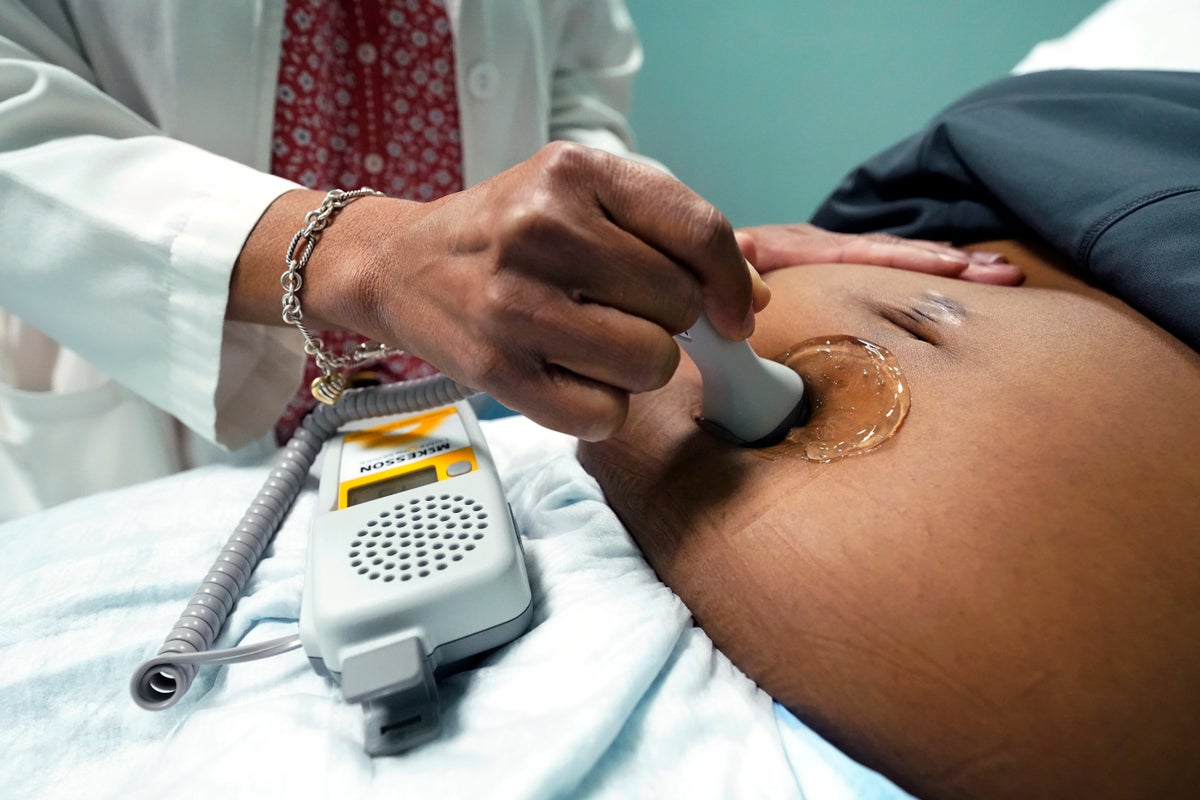
MPs have condemned the government for failing to tackle maternal health disparities as data shows Black women and women living in the most impoverished areas are more likely to die from childbirth.
A new report by the Women and Equalities Committee raised concerns NHS leaders and the government have “underestimated” how much racism drives inequalities as they urged ministers to establish a clear target to put an end to “appalling” inequalities in maternal deaths.
Black women are almost four times more likely to die from childbirth than white women, research published by MBRRACE-UK last November found.
The study, which looked at data from 2018 to 2020, also discovered maternal death rates in deprived areas are rising, with women living in the most impoverished parts of the country 2.5 times more likely to die than those in the least deprived areas.
Caroline Nokes, a Tory MP who is the committee’s chair, noted while NHS births are among the safest worldwide, “appalling disparities in maternal deaths” persist.
The MP for Romsey and Southampton North added: “Improvements are not happening quickly enough. One of our biggest concerns is staffing shortages in maternity care. We need to see a sustained uplift in funding to bolster a workforce that has been stretched to its limits.
“We are also afraid the government and NHS have not fully grasped that racism has played a key part in the complex reasons underlying the disparities, and that eradicating it is part of the solution.
“It is unacceptable that we consistently hear poor quality data on ethnicity is hindering efforts to address inequality. The onus is on authorities to improve data collection practices. We cannot let these women remain invisible to the systems supposed to serve them.”
MPs condemned the way the government has dealt with the taskforce established to address maternity care disparities, noting this was supposed to convene every two months but hasn’t met for nine months.
While the committee raised concerns the taskforce doesn’t make any reference to racism. MPs urged the taskforce to release clear-cut metrics for its progress, as well as update the committee every six months.
Discussing ethnic maternal death inequalities, MPs noted there were many “possible reasons” at play. “Including pre-existing conditions and co-morbidities; socio-economic factors including deprivation; and factors impacting on the care that women received, including ignorance, bias, microaggressions and racism,” the report stated.
Sandra Igwe, founder of The Motherhood Group, a social enterprise for Black mothers, said she was “saddened” but not “surprised” by the report’s findings.
Ms Igwe noted the National Inquiry into Racial Injustice in Maternity Care which she co-chaired “documented the traumatic experiences of Black and brown women who felt unheard and dehumanised through their pregnancy and birth which coincides with my lived experience also.”
She added: “We heard accounts of women whose worries were dismissed, including a Black woman who almost died of sepsis after healthcare professionals failed to hear her concerns or identify symptoms due to the colour of her skin.
“One of the most common experiences described in the testimonies we received was of Black, brown and mixed ethnicity women and birthing people’s pain being ignored or denied, and of pain relief being withheld due to disbelief among staff that labour had begun.”
Ms Igwe warned we must “accept and acknowledge” racism “exists in the UK” to be able to tackle health disparities in maternity care.
The year-long inquiry, carried out by pregnancy charity Birthrights, found systemic racism in maternity care means health professionals are endangering the safety and well-being of hundreds of women from Black and minority ethnic backgrounds.
The study, released in May last year, found racism is also impeding the “dignity, choice, autonomy, and equality” of women from Black and minority ethnic (BME) backgrounds.
BME women who presented evidence said they were subjected to racism and microaggressions, as well as damaging cultural assumptions. Respondents also reported coercion, incidents involving physical and psychological damage, and a dearth of choice and informed consent.
A representative for the Department of Health has been contacted for comment.







